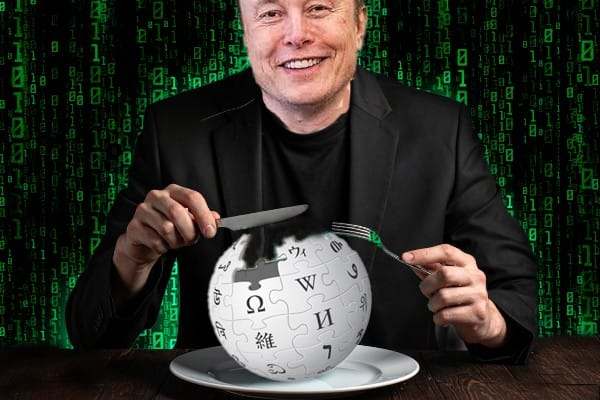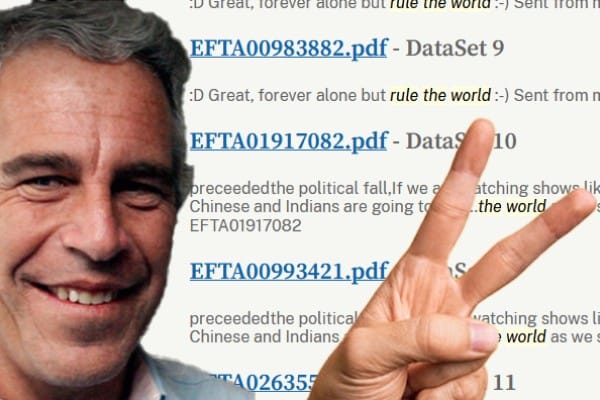How Free Speech Internet Culture Cooked Our Brains

As our technology has vastly overshot what resources we’re able to acquire with our meaty fingers alone, we’ve put stresses on our bodies that the slow pace of evolution hasn’t prepared us for. Or, in building our bodies for scarcity, we have been granted traits that make abundance detrimental. We crave sugar and salt because these are things that our bodies need, but we’re not physiologically capable of handling the vast amounts of it that we’ve made available to ourselves—requiring us to practice a restraint against our natural tendencies.
We weren’t built to spend very large amounts of time sedentary, in a seated position. We weren’t made for endless repetitive tasks that burn away the cartilage in our wrists and elbows. We weren’t meant to remember to “lift with our knees.” Our lungs didn’t develop to inhale smoke on purpose.
One thing, I think, that is rarely mentioned along these same lines is that we are evolutionarily unprepared for the devastating psychological consequences of the internet.

I think that we can all agree that there is something terrible happening to the Western world, politically. In the United States 2011 primaries, Republican voters chose Mitt Romney as their candidate to challenge incumbent Barack Obama in the presidential election. Romney was a very moderate conservative in a line of Republican presidential candidates which had been growing more moderate since Reagan, a pattern unbroken whether the candidate was successful or not.
Politics, in general, was cooling down.
Just four years later, in 2015, the heat shot up very suddenly. An extremely right-wing populist television celebrity swept the Republican primaries, ahead of his closest rivals, who were all still to the right of Bush. Donald Trump narrowly lost re-election in 2020 but reclaimed it in 2024, by moving even further to the right.
Now, things that would have been scandals even within the GOP a decade ago are normal and commonplace. There are anonymous neo-Nazis running the government’s social media and trolling the country with groyper memes. Congressional staffers have swastikas hanging up in their offices.

What the media isn't mentioning (understandably, due to the swastika distraction) are the "Ohio" memes also prominently displayed behind this guy, providing clues about how internet baked this shithead is. But we'll get to that soon.
In 2015, Hillary Clinton made a massive, campaign-wounding faux pas when she commented that some of Donald Trump’s followers were a “basket of deplorables.” In 2025, the White House spokesperson matter-of-factly declares that all Democrats are criminals and terrorists. There is no media firestorm. Not a brush fire, not even a spark.
‘Hamas Terrorists, Illegal Aliens, and Violent Criminals’: Trump Spox Karoline Leavitt Describes Democrats’ Base
— #TuckFrump (@realtuckfrumper.bsky.social) 2025-10-16T18:53:07.000Z
And then, of course, the literal President of the United States of America tweeted an AI generated video of himself in a crown, as America's king, piloting an aircraft, dumping... (heavy sigh)... dumping actual loads of wet feces on the American population.

Something has happened to a zeitgeist-altering number of people from the generation after mine and even the youngest of my own generation. People who are beginning to vote and beginning to enter government and lead companies.
Just the other day, the group chats for a number of Young Republican groups was leaked to the media. Falsely labeled by the Vice President as “young kids,” like they’re high schoolers, these are in fact mid-20s to even early-30s men, who are leading the Republican membership drive among youth. They are tomorrow’s politicians, and some are already senators. In private they make Holocaust jokes and refer to black people as “watermelon people.” Referring to black football players, one remarked “I’d go to the zoo if I wanted to watch monkey play ball.”
Those of you who read to the bottom of my articles know that I’m writing a book about this, and you can read excerpts of the draft here if you upgrade to a paid subscription, but here’s a taste of my Theory of Everything: The right-libertarian capture of the internet, the notion of it as a place where we can do or say literally anything that we feel like in anonymity, has turned it into a psychological torture chamber. Social media is making us less empathetic. It’s eating our humanity.

Here's what paid subscribers are reading right now:

I’m a big free speech guy in the sense that I don’t think words and ideas should be punishable by law. I’m not a “free speech absolutist” in the sense that I don’t think that no community or private entity should be allowed to set and enforce their own standards. I think, actually, that “free speech absolutists” or those who style themselves as such do not exist.
They can claim to exist, but almost always, what they really mean to say is “my views should be untouchable.” Elon Musk is the most famous example of a guy who was huge into free speech before he bought a social media company, after which he became one of the most censorial people on the planet. All those Twitter Files guys—Matt Taibbi, Michael Shellenberger, and Bari Weiss—have long histories of trying to censor people, often succeeding. Taibbi is giddy with excitement when his enemies are censored. Shellenberger launches cancelling campaigns to get research shut down. Weiss started her career trying to get academics fired for their views.
Musk once vowed that he would use his immense wealth to fund the legal campaign of anyone who was fired for something they posted on social media. Now he is leading the charge to get people fired for being insufficiently mournful of Charlie Kirk, shielding from suspension users who violate Twitter’s anti-doxing rules.
Taibbi has said numerous times that free speech is a right-wing virtue that used to belong to the left until they dropped it as a tenet. This is illusory. The only reason that hardline speech freedom appears to be right-coded is because, when your beliefs are in the minority, you feel suppressed. The right dropped free speech like a hot rock the second Trump came to power again—and so did Taibbi.

The suppression that people feel for noxious views comes from social stigma. Most of us have grown up as empathetic people and the better socialized we are, the more empathetic we are. We see other people as human, like ourselves, and when we say something that makes the people close to us upset, it’s like touching a hot stove.
Yes, that can result in resentment. Yes, it can drive people into pockets of extremism. By and large, I do believe that, absent extreme external stresses, this effect moderates us. I do believe that growing diversity in the West is a great deal responsible for the gradual liberalization of the right that began to happen in the 20th century. When we grow up around a lot of different people and perceive them as human, our bigotries toward those people fade.
Then the internet happened.
Now when people say something that comes across as bigoted, and they get that shock of pain and resentment and bitterness, instead of going back out and participating in a community that will hammer the hatred out of them, they go to the internet. When everyone is anonymous, you can say whatever you want, because, crucially, you are not talking to human beings. You are talking to a computer.

Some of us who spent our formative years before the internet tried to develop communities with the same types of communities that we had offline, with our own standards. Websites had forums, and the forums had codes of conduct. I was an administrator at David Wong’s Pointless Waste of Time, which eventually became Cracked. We didn’t have Nazis on PWoT. If they appeared, we would just ban them. Nobody raised a massive fuss about that.
Today, you can’t really run a large internet community without Nazis. If you try, you will find yourself hauled in front of a Senate inquiry. Because the internet evolved to serve a different kind of people.
I don’t know what kind of person I would be today if, instead of PWoT, I had landed on Something Awful or, especially, 4Chan. These were much more mean-spirited communities and the latter branched off from the former in response to SA’s erratic moderation. These were people who came to the internet to escape social norms. If they had bigotries, they weren’t stuck in a world that would attempt, painfully, to smooth them out. They could retreat instead to a world that would instantly reaffirm them. Quick gratification—instant relief from the sting of touching that stove.
At the risk of sounding “woke,” I’ll state the following fact: The earliest adopters of the internet—carried over from the bulletin boards that preceded it—were overwhelmingly white and male. Their culture seeded the internet at its beginning. The grievances they brought to this new anonymous digital world were the grievances of white men who have grievances. Those whose views, due to their unpopularity, made them feel suppressed, became extremely libertarian. They became—again, a misnomer—the “free speech absolutists.”
These folks built their own communities with aspirations of total freedom—often with rules that restricted speech only according to its legality (no death threats, no child porn). These communities, chief among them 4Chan, became the dominant culture of the social internet. Communities with rules lost the Darwinian battle against communities with no rules.

The founders of these communities were not necessarily radically right-wing. Some of them were—mainly fringe offshoots from mainstream social media like Gab, Parler, Rumble, and Voat—but most were moderate, if right-leaning, libertarians, who thought “free speech absolutism” could legitimately work if they could engineer it properly. That they could sell a refuge from offline social norms, without anticipating the kinds of social harms that might arise from this project. Nevertheless, the result of this project keeps resulting in radically right-wing platforms.
I have a theory that, to humble-brag, went extremely viral on Substack back a couple of years ago during its “Nazi problem” controversy, and it’s that aggressively fringe right-wing views are a type of content, pornography is another, that I call “liquid content,” because it takes the shape of its container. People who don’t want to be around it simply leave and go elsewhere, allowing the liquid content to completely flow in fill up the platform.
What I didn’t mention in that piece is that there are some people who inevitably stay on those platforms and dissolve in the liquid.
Twitter is a platform that completely filled up with liquid content. It was accelerated by Elon Musk after he took it over, renamed it X (which I refuse to say because it’s stupid), and removed all rules, but it was headed in that direction anyway. Twitter now has a comparable culture to Gab, Parler, or Truth Social, all of which were clone platforms designed as far-right alternatives to it. Many people fled to alternatives such as Threads or Bluesky. The former, a Mark Zuckerberg property, has since dropped its rules in capitulation to Trump, and is headed in that direction. The latter also doesn’t really have any rules that would prevent a far-right takeover and I suspect the only reason that hasn’t been attempted at scale is that they kind of like to keep it there as a curiosity. That doesn’t mean it doesn’t get occasionally attacked and threatened by people who can’t stand that it exists.
There are still people who remain on Elon’s Twitter, swimming in its baleful liquid, and many are becoming dissolved by it.

This really is the crux of our situation. There are a crazy number of people born in the early to mid 2000s who spent their entire lives pickling their brain in the jar of 4Chan, and the sites that sprouted from that culture. They are now becoming politically active adults. They don’t see everybody as a human being. Racism is skyrocketing because Nazism was a thing that went against social norms, so it became something you could joke about online, and then they dissolved in the jokes and they stopped being jokes. The news is just text on a screen, which is just memes. Trump drone-striking Venezuelan fishermen is Based. ICE and the military terrorizing people in the street is Epic.
As this batch of 4Chan cookies is released into the governments of the world, the next batch is already being baked in Musk’s Twitter, and it is worse.
I believe, if we wrestle Western society back from its trajectory, led by America, into fascism, we are going to struggle with the internet problem. Some countries, including Australia, that have detected the problem, are introducing laws to prevent children from accessing social media. I’m completely against this, for multiple reasons. Primarily: 1) I am a free speech guy! I’m for the legality of all speech, and this places a legal barrier against all speech; 2) I’m a huge data privacy guy, and this is probably going to force me to hand over personal information to all the odious and evil techbros who control the internet to prove that I’m an adult; 3) It won’t work!
It won’t work, because the problem isn’t children. Adults are susceptible to this. It’s probably less effective, and slower, and the dynamic is different based on the type of personality, but the transformational effects rise up and filter down on all of us. People don’t remember this, but Elon Musk used to be a moderate.

He baked in the Twitter oven for years before he was consumed by it, then purchased it to open the levees of bigotry wider, and then, ultimately, throw up a straight-arm salute and declare those who declare “Hitler was right” have “said the actual truth.”

Musk isn’t a crazy outlier. You can watch former political moderates, who spend too much time on Twitter or Rumble, dissolve grotesquely into fash-humping slop. I wrote, in August, about Glenn Greenwald’s worrying defense of neo-Nazi Nick Fuentes, and since then, Greenwald has further doubled down on normalizing Fuentes and speaking to him on friendly terms as a journalistic peer—a phenomenal reputation laundering effort that has since earned Fuentes an appearance on the Red Scare podcast, another media enterprise that began ostensibly leftist but is becoming amenable to the far-right after spending too long in the too-online ecosphere. Like Joe Rogan. Like Tim Pool. Like Theo Von.
For 25 years the idea has persisted that “online isn’t real life.” But online is real life. In many ways, online is more real life than real life. Online is in control of real life. People who felt wounded by objections to their bigotry, wounds inflicted by their empathy, fled to the internet, where they were told that empathy is a disease, one that can be cured with discipline. This mentality, baked in the internet’s oven, is now being birthed into what they used to call “meatspace.” Defeating Trumpism is only the first challenge—saving democracy long term will involve solving Internetism.
What I’ve said in this article is not the entire story. There are other external pressures that have led to the rapid rise in far-right politics during the internet era, including 9/11, and, surprisingly, hippies. It’s all detailed in the book I’m writing on this subject. The working title is How Geeks Ate the World and I’m going to be dropping parts of the draft into this very newsletter as the project comes along—but only for paid subscribers. A new chapter is coming out this very weekend! So if you want to read along in real time, please consider subscribing. Otherwise I’ll be keeping you in the loop. Check it out here:



Here's what paid subscribers are reading right now:





